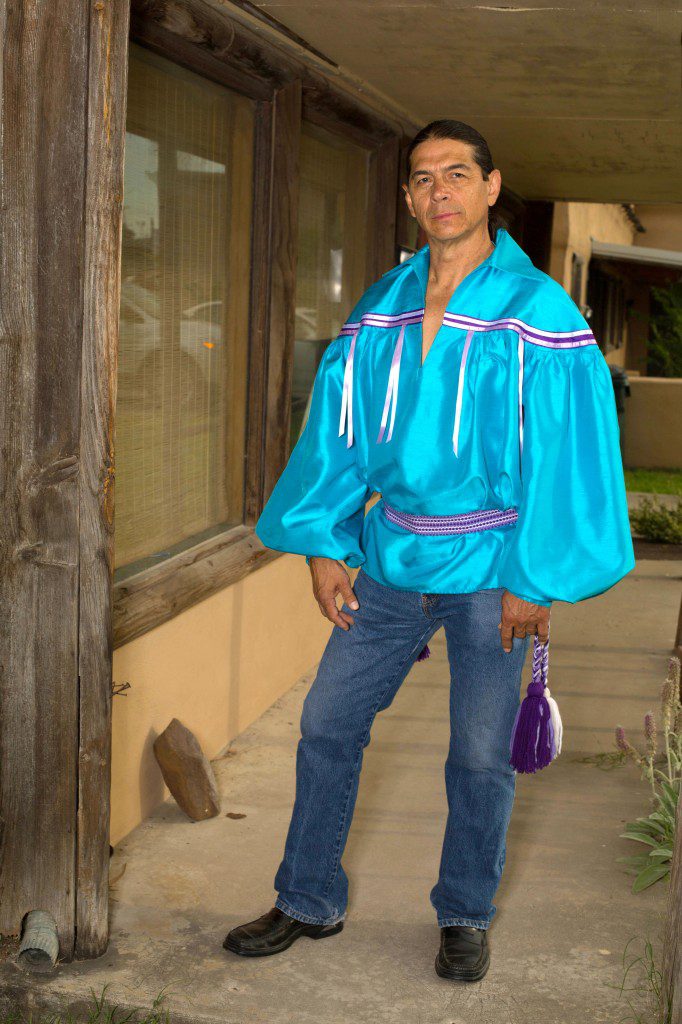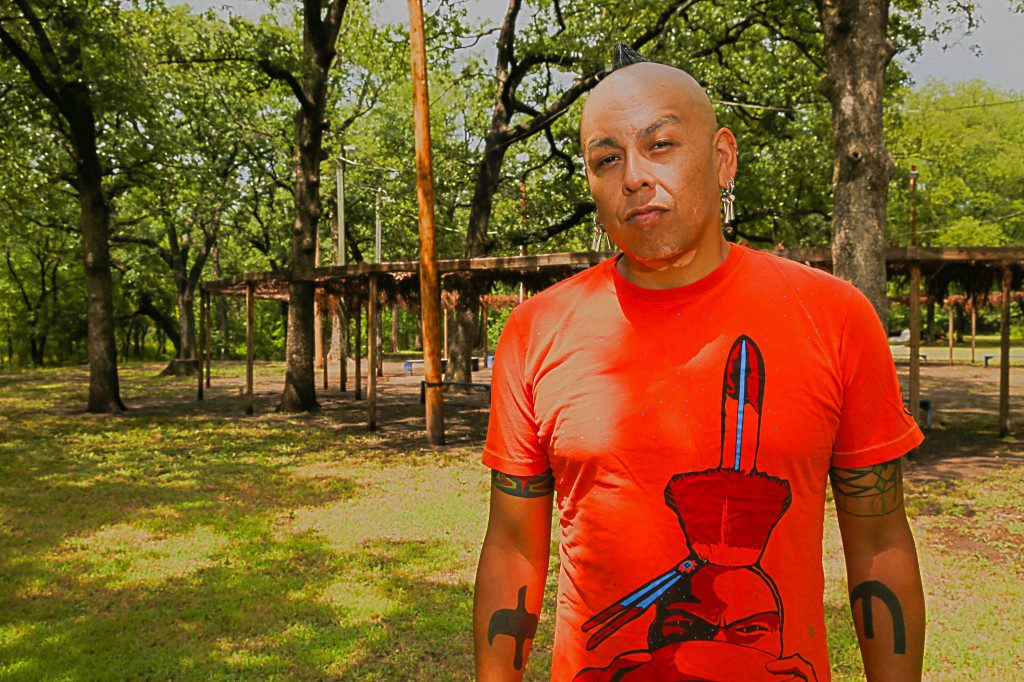
Euchee member Dr. Richard Grounds speaks his mind – in English and Yuchi, his tribe’s language. His habit of injecting Yuchi into every conversation, regardless of the context, can be unsettling until listeners realize what he’s doing. His mission to resurrect the disappearing language is a serious one, but it doesn’t mean he can’t have fun with it.
“sô KAnAnô. We are still here. Our language is still here. It’s important to us, and it’s a critical issue that people are unaware of. The absence is unnoticed,” he says.[pullquote]“We’re fortunate to have our elders, our living speakers. The youngest is 89 years old. We work with them and try to learn as much as we can. They are our living dictionaries, walking encyclopedias of the culture, history and richness of our language,”[/pullquote]
Grounds takes every opportunity to speak the language, whether the listener understands or not. His voicemail message answers in Yuchi. So does he. He answers questions first in Yuchi, then in English. Even when he’s not understood, it gives him a chance to exercise his fluency and stretch his Yuchi muscles. If he waited for conversations with other Yuchi speakers, he says, it might be a never-ending gap.
“There are so few Yuchi speakers on the planet. It’s a benefit to me to be able to use the language, regardless of the context. Sometimes it seems that I have an imaginary discussion partner, but it’s an opportunity for me to use the language, to keep my skills up,” he says.
The Euchee are Tzo-Ya-ha – “Children of the Sun.” Yuchi is a language unlike any other American Indian language, and it resists classification. It’s not a member of a larger linguistic family, so there are no similar languages available for comparison. There are few written samples available.
“We’re fortunate to have our elders, our living speakers. The youngest is 89 years old. We work with them and try to learn as much as we can. They are our living dictionaries, walking encyclopedias of the culture, history and richness of our language,” he says.
Grounds heads the Yuchi Language Project, a systematic effort to rigorously document Yuchi. But he sees traditional methods of preserving languages as half-measures. More important is what he calls “breath-to-breath immersion,” the exposure of new speakers to Yuchi in conversational and cultural contexts.
“We’re the only ones on the planet that have been given this way of speaking, this way of thinking, this way of engaging the world. That’s certainly a privilege the Creator has entrusted us with. But it comes with a responsibility to make sure that gift is available to future generations,” he says.


























